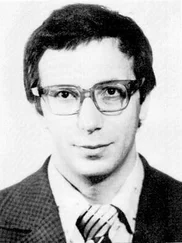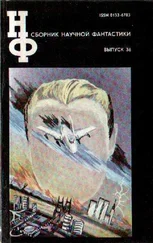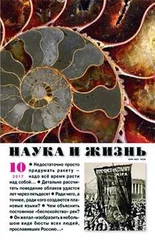“He is our King,” says Maggie. “We have been waiting for him since the beginning of time. And you are our Queen. You will intercede for us with your son.”
The labor pains are almost continuous now; she can feel the baby impatiently pushing out of her womb. There are faint screams, booms of explosions, rattle of gunfire; it takes her a moment to realize they are coming from the TV.
“But aren’t you afraid of him?” she cries. “Aren’t you afraid, Death, that you shall die?”
She sees ambiguous smiles on their faces, but another twist of her guts makes her collapse on the couch, unable to push away Maggie’s solicitous hand. Zoe removes her helmet and she sees the old brown bones of a skeleton rotting in some anonymous grave. The empty eyeholes are filled with light, and Mor still has the strength to wonder: Is it the longing for oblivion or the certainty of triumph?
White Curtain
Pesakh (Pavel) Amnuel

Irecognized him immediately although we had not seen each other for eleven years, having last met under very different circumstances. There was a change in him: he looked older, yet, somehow, better.
“Hello, Oleg,” I said.
“Hello, Dima,” he answered, as if we had spent the day before as we used to, in years past, drinking and arguing about the cascading splice theory. “I knew you’d come. Sit. No, not on this chair, that’s for visitors. Sit here, on the sofa.”
I sat down, and the sofa squeaked in protest.
“Of course you knew,” I said. “You are the prophet.”
“I’m no prophet,” he said sadly. “Who knows that better than you?” He spoke more slowly than ever before, enunciating each word to the last syllable.
“Yes,” I said, not trying to hide the sarcasm. “Who better?”
“How did you find me?” Oleg asked.
“With difficulty,” I admitted. “But I found you. You were…”
“No matter,” he interrupted, “it does not matter at all, what I used to be. Why?”
“Why what?”
“Why did you come? I don’t think you came just to make sure it’s me. You want something from me. Everyone does. Success? Luck?”
If there was irony in his voice, I did not notice it. I did not need luck. Especially not from him.
“Irina died last year,” I said, looking in his eyes. “We had been together for ten years, two months, and sixteen days.”
He turned away from me to look at the curtained window. What did he see in that blank screen, that white expanse where all the colors of his life were mixed together? Himself, young, walking Irina to a discotheque? Or only Irina, on that long-ago day when yet another dazzling presentation he made at that morning’s seminar inspired him to believe himself irresistible to women? The day I watched, from the auditorium door, as he proposed to her with this newfound confidence, as she kissed the corner of his mouth and said that he was a little late because she loved another, and cast an eloquent glance in my direction, and he followed it and understood. The day Irina and I left him behind, defeated and deflated, useless even to himself.
The day I saw him for the last time, until now. On the following morning Oleg Larionov, previously a promising theoretical physicist, submitted his letter of resignation. The dean, though loath to lose him, eventually would have allowed him to leave on good terms (he stamped the letter with “Approved at the end of semester”), but Oleg left without waiting for the response. He left without saying goodbye to anyone. He had been seen boarding the forty-three bus in the direction of the train station; except for that, no one had even an inkling of where he was going.
And that was all.
“Why did she die?” Oleg asked, his gaze still on the white, screenlike curtain. Why did you not save her? was what I heard.
I could not. I could do nothing. My strength was in theoretical work, I excelled at splice calculations, perhaps not all, but up to a very high complexity, up to twelve branches of reality, that’s quite a lot, almost unheard-of for an analytical solution—but in reality there was nothing I could do. Irina fell ill unexpectedly and died soon after. How soon? She was diagnosed in March, and in July she was gone.
“Brain tumor,” I said. “Could not have been predicted. There wasn’t a nexus of branching…”
“Theoretically,” he interrupted, and I could not decide if his words mocked mine, or were a simple statement of fact.
“I’ve been looking for you for an entire year,” I said. “And found you. As you can see. Do you remember Gennady Bortman?”
Oleg turned toward me at last. I had expected something in his gaze, a feeling, anything. But there was nothing. He looked at me as calmly as a doctor at a patient suffering from a cold.
“I do remember him,” said Oleg. “It’s a pity.”
“He stayed on the branch,” I said, “which you predicted for him. Was there anything he could have done?”
So much depended on Oleg’s answer. I did not want to think about my life. But Ira’s….
“Dima,” said Oleg and rubbed his hands together, an old familiar gesture with which he once rubbed chalk dust off his hands after a long presentation, adding it to the floor already littered with chalk crumbs. “Dima, he could have chosen any branch in his reality. The months he had until…. Of hundreds of decisions, you understand, each time a new branch grew, but always in the direction…”
“In our reality,” I interrupted, “only your prophesy could come true. Your branch was stronger, more resilient.”
“Yes,” Oleg nodded, “My branch had higher probability, a million times higher.”
“In other words,” I said, and it was important for me to be clear, so very important that I had searched for Oleg for a year, an excruciating year of living on memories, “in other words, for a million possibilities you choose, there may be one chance for someone else’s choice?”
“Maybe not a million,” he said, still rubbing his fingers, his gesture irritating me so much that I fought the urge to slap his hands. “Maybe ten million. Maybe a hundred billion. There is no way to measure, no statistics.”
“You’ve had years to compile statistics,” I said. “You set yourself up as a prophet to compile statistics, don’t try to tell me you didn’t! For God’s sake, don’t tell me you are disillusioned with pure science and became a practicing prophet only to help people!”
“I do help them…”
“Some of them! Oleg, I’ve hung around here for a week; I listen to people waiting for their turn, some for six months, they come every day, they wait and walk away and come back, and once in a while one of your secretaries will come out and say, “He won’t see you, sorry,” and it’s no use arguing back. And some, people you pick out from the crowd, you’ll see them right away, only them, predict a happy, creative life with luck in business and personal fulfillment.”
“Have I been wrong?”
“Never! You are one hundred percent reliable! This means you choose the necessary branch of the multiverse with an accuracy of at least ten sigmas!”
“Eight sigmas,” he corrected. “I have compiled enough records for eight sigmas, I need another three years…”
“The hell with that,” I said. “I looked for you so that…”
“It is impossible, Dima.” Oleg stopped rubbing nonexistent chalk off his fingers, put his hands on his knees, and looked me in the eyes. “You know it’s impossible. You were the one who proved the theorem, according to which…”
Читать дальше







